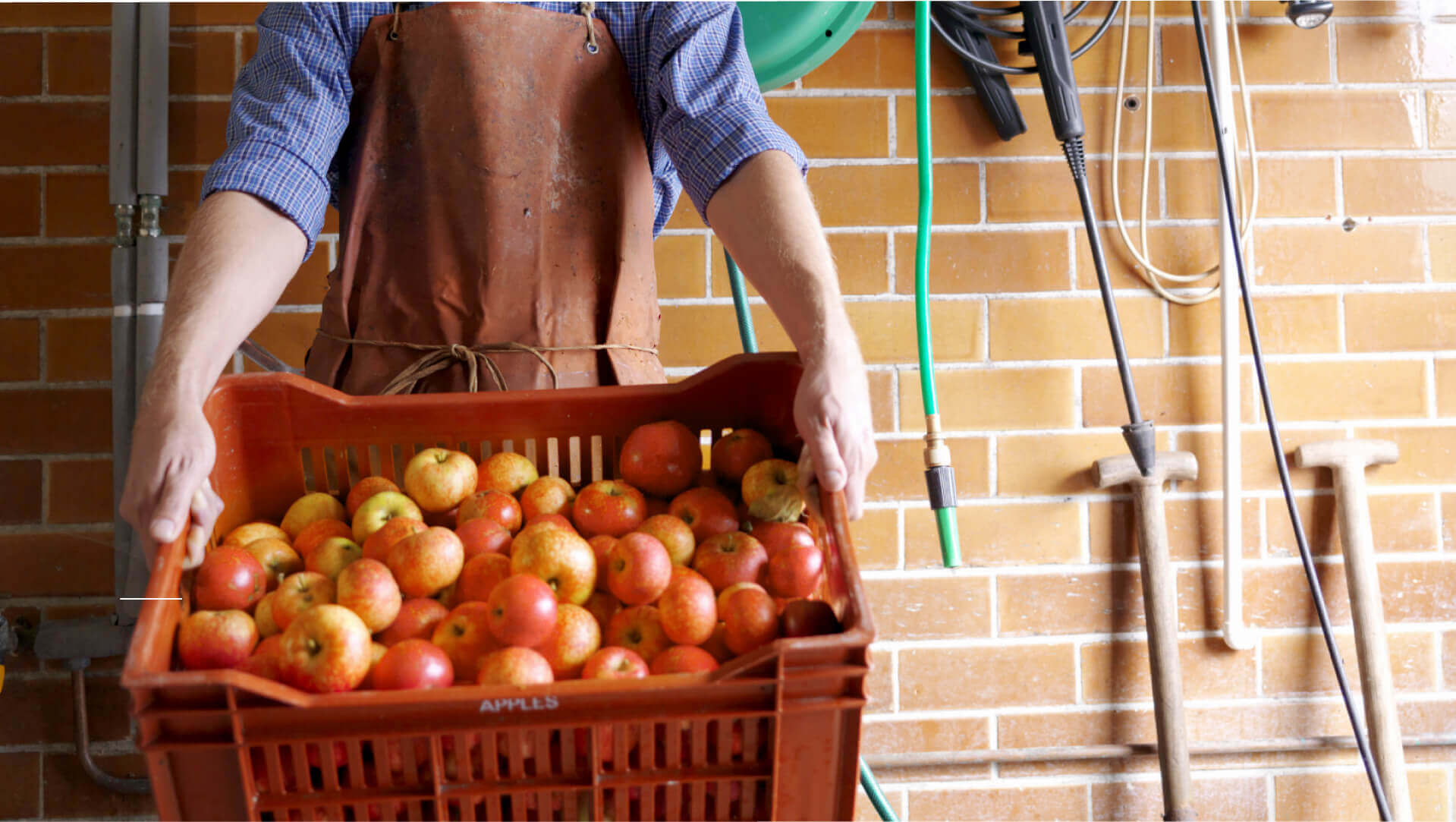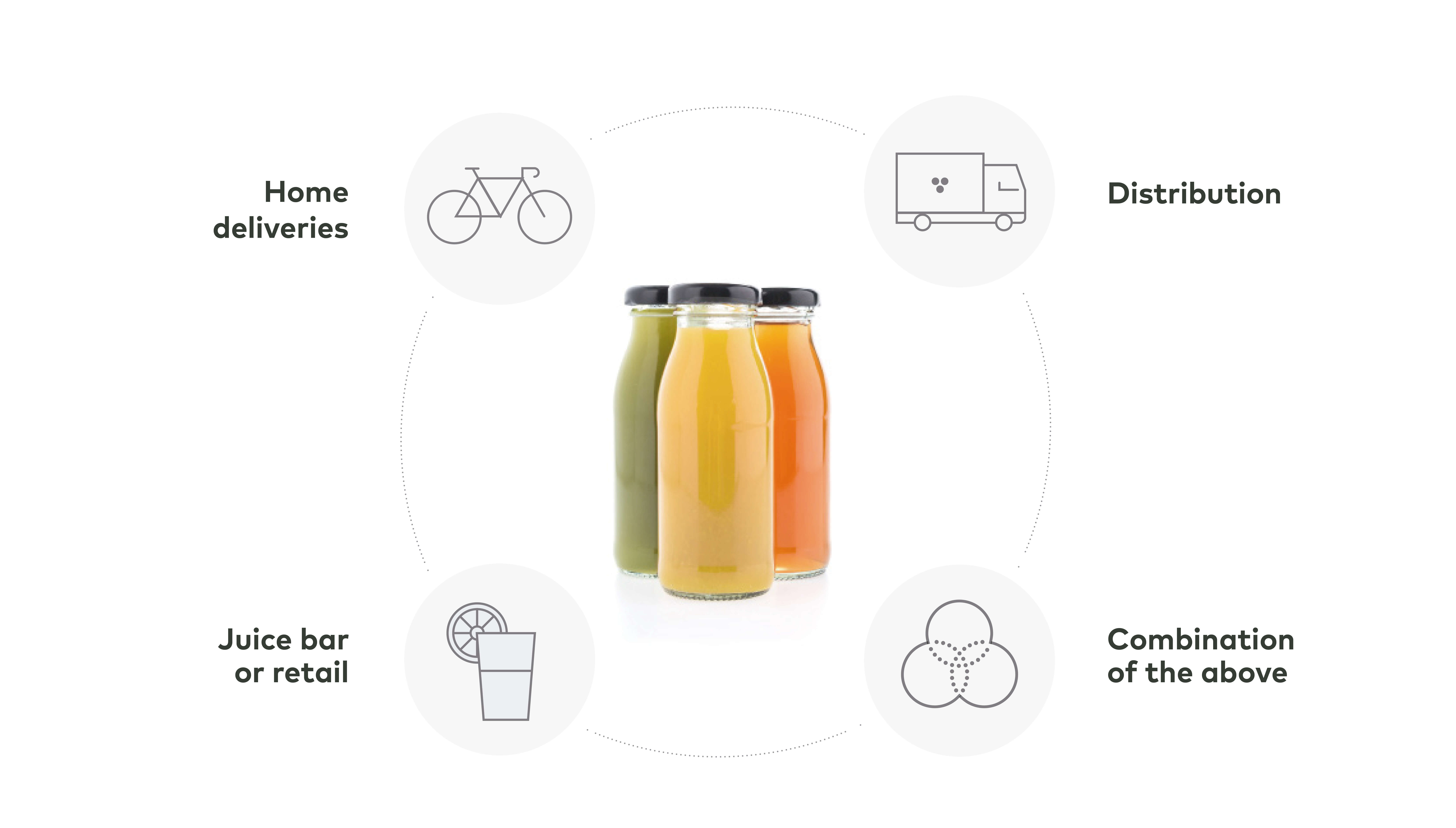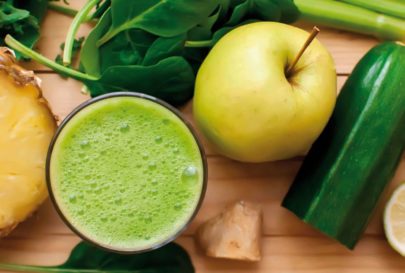
Types of Cold Press juice companies, which one am I most interested in?
Possible juice companies models for your project
As a general rule, there are three different types of approach you can give your juice project:
-
Door to door only
This is a simplest business model to start, as the initial costs are very low. Many of today’s large cold press juice companies started their operations by delivering juices to the neighbours. There are kitchens that are rented by the hour in which juices can be produced, in almost any large city. There are even some entrepreneurs who started from their own homes, although, and this is worth taking into account, in most Western countries this would not comply with the current health legislation.
Current technology allows for creating a website where customers can place their orders and make use of companies such as Glovo, Deliveroo or Ubereats to make the deliveries. And thanks to the segmented campaigns allowed by social networks such as Facebook or Instagram, you can easily address your potential buyers by offering cold pressed juice delivery.
Once the business starts to have a little bit of success, it is usual to convert it into one of the two following types:
-
Juice Bar
Is the most expensive to set up, as you must include the costs of the location, reforms, the design of a decorator, etc but if the chosen location is good, it provides much more visibility to the business.
In addition, when you set up a juice bar, you can add breakfasts and lunches to the menu, with recipes for salads, bowls, energy bars, so that the average sale can be higher and offset the higher initial structural costs. In fact, today there are very few juice bars that only offer juices, so if you go down this avenue to begin with, it is recommended that you have help when designing a good menu to complement the juices menu.
Furthermore, as part of the brand strategy for your juice bar, the design and the service your customers receive is very important, as part of your juice bar brand strategy. Remember that any visitor to your business seeks an experience and if they feel that they are in a place where they are well attended and where we are concerned about explaining the benefits of each product and even helping them lead a healthier diet, the chances of them coming back are much higher. Some juice bars even offer health-coaching services or have alliances with Yoga or Pilates centres to ensure that the customer’s experience is the most gratifying possible.
If the concept is successful, one of the advantages is that it can be replicated in different neighbourhoods in your city and you can even opt to franchise it out. If you decide to go it on your own opening new shops, you will have to decide whether you want to have a central location where everything is made or whether the juices are made at each of the shops. Obviously, the first option is the simplest with regards to the cost and planning but there are also companies that have opted for the second, in order to give the impression of freshly squeezed juices at each of their locations.
-
Wholesale sales
It is not usual set up a juice business to sell to supermarkets, as it is normal to do this occurs once the brand has started to grow, although there have been cases of entrepreneurs who had a very clear business model and started to directly produce their juices from a factory. It is usual that the overhead costs are much higher, and in this case, one must take into account that the end customers are mainly businesses, with which negotiations will be tough, through to defining the end retail price and the minimum quantities that they are going to buy from you.
The sales volume one can attain is much higher, but the sales price will also be lower than that of a juice bar. However, if the juices are sold in supermarkets and the company grows, the overhead costs do not multiply as much as in the case of a chain of juice bars, where the setting up of each new location entails a large investment.

It is important to bear in mind that in order to sell wholesale, the juices must go through a process that lengthens their usual shelf life of 3-5 days under normal conditions to the 30-45 days that can be achieved through processes such as HPP or a UV (ultraviolet) treatment.
These three well-separated categories do not necessarily have why be mutually exclusive. There are juice bars that broaden their reach selling online and also making deliveries or companies set up as wholesalers that have small niches in local markets to maximise the sale of their products. Furthermore, it is possible to specialize in particular juices, as in the tropical juice bars case.
Other considerations when starting up a fresh juice business
It should also be taken into account that as the business evolves and depending on each country and the competitors in it, one way of business or another may be the most interesting. The important thing is to know your potential customers very well, as well as all the companies that operate in the industry, in order to offer a product and experience to the customer that is completely differential.
As a final point before starting we need to know if we want our product to have the organic product certification. At present, most of the producers operate with conventional products, but the rising trend of organic farming makes it relevant to consider whether it is interesting to cover this niche in the country or city in which we shall operate.
Sales of organic juices have been growing at rates above 25% in recent years in consolidated markets such as the United States, whereas those of conventional juices have done so at a slower pace. On the other hand, the raw material is more expensive, which should make the final product have a higher price. One must simply study the market, costs and possible sales prices properly and choose the alternative that may work best in your market!
Are you thinking about how to star a juice business? Do you have any doubts about the profitability of the juice business? Zumex Food Engineering can help you.







VEARY GOOD JOUICS MADE BY COLD PRESS MACHINE